Chinese, Mozambican hospitals hold remote medical consultation on complex cases
Mozambique: Glaring mistakes in textbooks printed in Portugal – AIM report
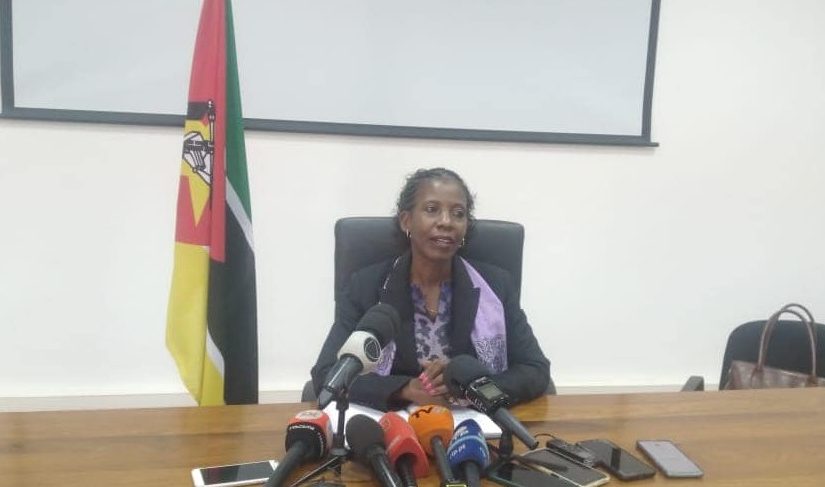
The Ministry acted after severe criticism of the book on Mozambican social media, but the Ministry spokesperson, Gina Guibunda, speaking at a Maputo press conference on Sunday, claimed that the same mistakes had been spotted by the team of teachers, managers and education experts who look at all new textbooks. [Photo: Miramar]
The Mozambican Ministry of Education has said it will distribute an errata sheet to correct grotesque factual mistakes discovered in the new sixth grade social science textbook.
The Ministry acted after severe criticism of the book on Mozambican social media, but the Ministry spokesperson, Gina Guibunda, speaking at a Maputo press conference on Sunday, claimed that the same mistakes had been spotted by the team of teachers, managers and education experts who look at all new textbooks.
The worst errors concern basic geography. In a section dealing with pre-colonial states in southern Africa, the book states that Great Zimbabwe was bordered to the north by the Red Sea and the Gulf of Aden. That would put Great Zimbabwe in the Arabian Peninsula, thousands of kilometres from its true location.
It also claimed that Malawi and Zambia are to the south of Zimbabwe, whereas in fact they are to the north.
At one point, the book puts Mozambique in East Africa, along with Zambia, Zimbabwe and Malawi. The authors seemed blissfully unaware that, ever since independence in 1975, Mozambique has been classified as a southern African country, and was a founding member of the Southern African Development Community (SADC).
The book mentions the Mozambican parliament, the Assembly of the Republic, but this page is illustrated with a picture of the Angolan National Assembly.
Up until now the main complaint about the textbooks, printed in Portugal by the company Porto Editora, has been their late arrival. The books should have arrived by January, so that they could be in pupils’ hands by the start of the 2022 school year. But they only arrived last week, five months late.
Now basic mistakes have been found, raising questions about whether the text was proofread before it was sent to the printers.
Guibunda assured parents and pupils that “this content has not yet been taught, and when the time comes, the errata sheet will certainly be in the teachers’ possession”. She added that a commission of inquiry will be set up to discover who was responsible for the mistakes.
Guibunda made the unlikely claim that the errata sheet will not involve any extra costs for the Ministry, because the corrections will all fit onto one page. It will be emailed to school managers who will then be responsible for printing it and distributing it to teachers and pupils.
The Ministry ordered 941,700 copies of the sixth grade social science textbook. It is clearly impossible to print an extra page for 971,700 books at zero cost.
Jettisoning the book was out of the question, said Guibunda. “The book will not be thrown out”, she stressed. “Enormous investment has been made in this book”.
She claimed that producing the book had gone through all the correct stages. A tender for an editorial consultant had been launched, and this institution (Porto Editora) then hired the authors, content revisors, and illustrators required. The book was then submitted for assessment, and the Assessment Commission sent recommendations to the publisher, which should have made changes accordingly. The text then went to the National Institute for the Development of Education (INDE), a body subordinate to the Ministry, for any final changes.
And yet the book reached the pupils containing mistakes that anybody with a basic knowledge of southern African geography should have spotted.
Guibunda was speaking only about the sixth grade textbook. But journalists have begun looking at other textbooks produced by Porto Editora, and in the 10th grade history textbook, they found a shameless attempt to whitewash colonialism.
This extraordinary paragraph reads: “The colonial epoch was characterized as a moment of relative peace and stability. Ethnic wars ceased to happen in almost all of Africa, since the African was no longer an African, not a Macua, not a Sena, not a Shangaan, not a Kikuyu, not an Ovimbundu, not a Nama. He became Portuguese, Spanish, French, Belgian. German and Italian”.
This is propaganda straight out of the claims of the Portuguese colonial-fascist regime which said there were no such places as Portuguese colonies, merely “overseas provinces” of an indivisible “pluricontinental Portugal”, and there were no Mozambicans or Angolans, just Portuguese who happened to be black.
The Namas might have been surprised to find that they were really Germans, since in 1904-07 they and their Herero neighbours were massacred by the German Imperial Army in the first genocide of the 20th century.
This is not a geographical mistake that can be corrected by an errata page. It goes to the heart of the political view of whoever wrote the book.



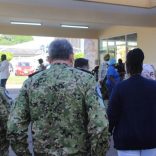
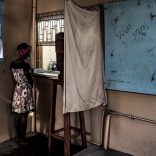

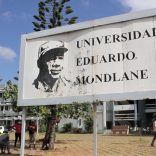
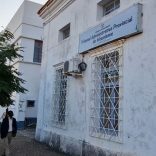





Leave a Reply
Be the First to Comment!
You must be logged in to post a comment.
You must be logged in to post a comment.